TerraMaster F5-422 5-Bay 10GbE NAS Management
After turning on the NAS, connecting it to your network, type in “start.terra-master.com” in your browser to bring up the Quick Installation Guide. We recommend using Chrome as we did have a few issues with Windows 10 Edge.
The setup of the F5-422 is identical to the past TerraMaster NAS units we have reviewed. Head over to F2-210 review for a complete write up on setting up a TerraMaster NAS.
We will show a few screens that highlight the F5-422.

The main TOS Desktops are the same as the past reviewed units.
Here we see the hardware information for the F5-422.
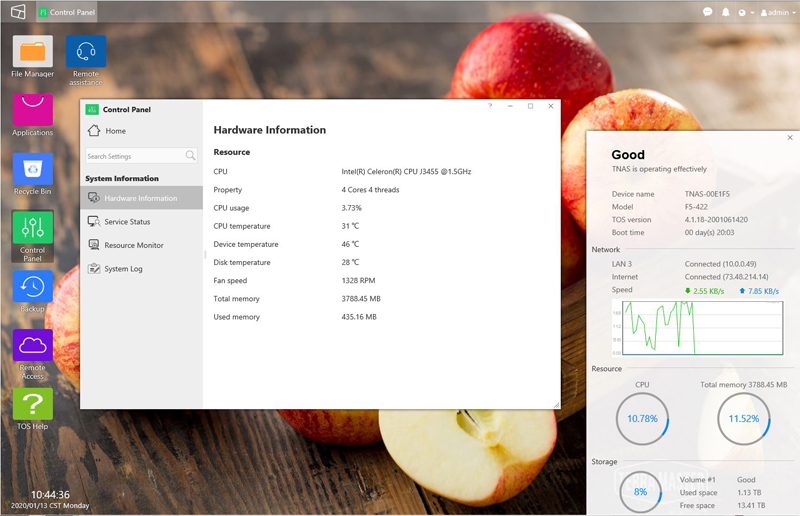
One will note that the F5-422 uses the same processor as the F4-421 4-Bay NAS.
Here we see the Networking Interfaces for the F5-422.
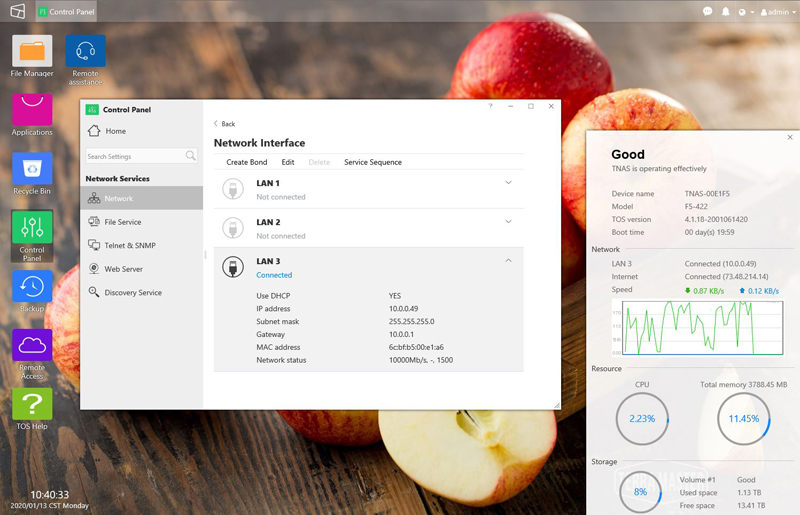
Selecting LAN 3, we find the 10GbE interface. We note there is no provision to adjust the MTU for the 10GbE interface; the setting of 1500 is not changeable.
Applications for the F5-422 are also the same as previously reviewed units.
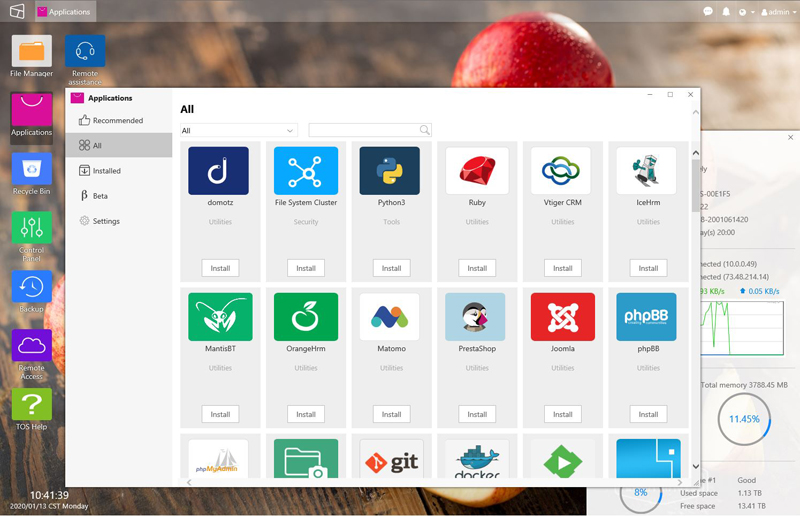
There are both more and less complete solutions on the market in terms of the operating system and applications. Still, the GUI is extremely easy to use. It is clear that TerraMaster is trying to make the unit easy to administer for a novice SMB, edge, or home administrator.
Next, let us take a quick look at the F5-422 specifications and continue with testing.
TerraMaster F5-422 Specifications
Here are the key specs of the TerraMaster F5-422:
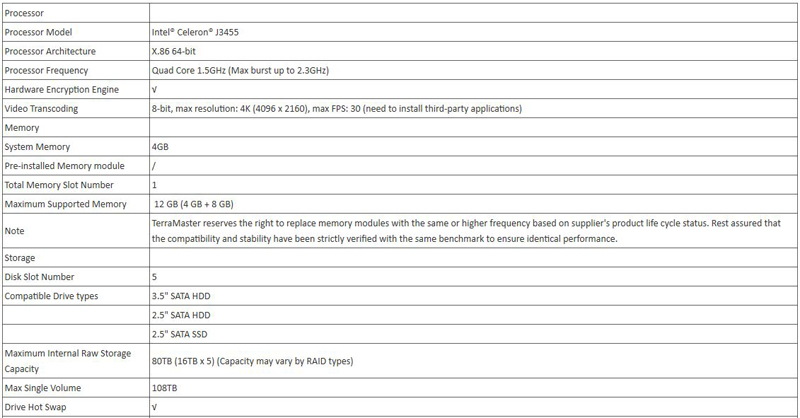
Next, let us move onto testing.
Test System Configuration
The platform that we use for the testing on all of our NAS testings consists of the following items.
- Motherboard: ASUS ROG Zenith II Extreme Motherboard
- CPU: AMD Threadripper 3960X (24 core / 48 Threads)
- GPU: NVIDIA RTX 2080 SUPER
- Cooling: NZXT Kraken X62
- RAM: Corsair Dominator Platinum RGB 3600MHz 4x 16GB DDR4 (64GB Total)
- SSD: Sabrent Rocket 1TB NVMe Gen 4 SSD
- OS: Windows 10 Pro
- TerraMaster F5-422 Storage: 5x Seagate Ironwolf 4TB HDD’s.
Let us continue with testing the F5-422.


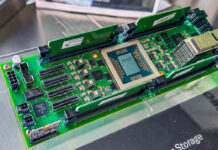
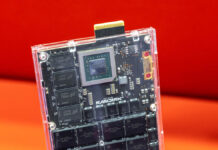
Hope this trend continues. I think a lot of readers view this as a sweet spot with HD count and 10gb. Of course I wish the prices was half of what they are but hey this is low volume prosumer gear. I would like to add that just a case for 4 or 5 hard drives with nothing else costs north of $100 (new). I’m using a small dell tower for my personal nas and was looking for a convenient way to mount the drives… double sided tape and a case fan were more in my budget xd
What about power consumption at idle, 4K transcoding etc … ?
I’d be interested in seeing results from a raid 10 or 0 array, just to see the best possible numbers this box can dish out. (understanding the disadvantages of not having any protection in raid 0, and the loss of extra capacity at raid 10).
I think it would be good to precise what file system is used on the Test Setup for the different NAS storages compared.
Because from my understanding TerraMaster F5-422 is using Btrfs file system by default, which some are accusing of delivering lower throughput, especially in high I/O demanding processes and when using 10GBe connection (the bottleneck could be far less visible for 1GBe connection). This is why QNAP doesn’t want to support Btrfs for now.. And while Synology support Btrfs, I’m not sure it is set by default.
In addition F5-422 supports EXT4 also, so maybe the performance could be a little better with different file system?
> After turning on the NAS, connecting it to your network, type in “start.terra-master.com” in your browser to bring up the Quick Installation Guide.
I would not buy a NAS that requires internet and manufacturer’s website to be able to configure my local device. Would it be a brick if their website gone down?